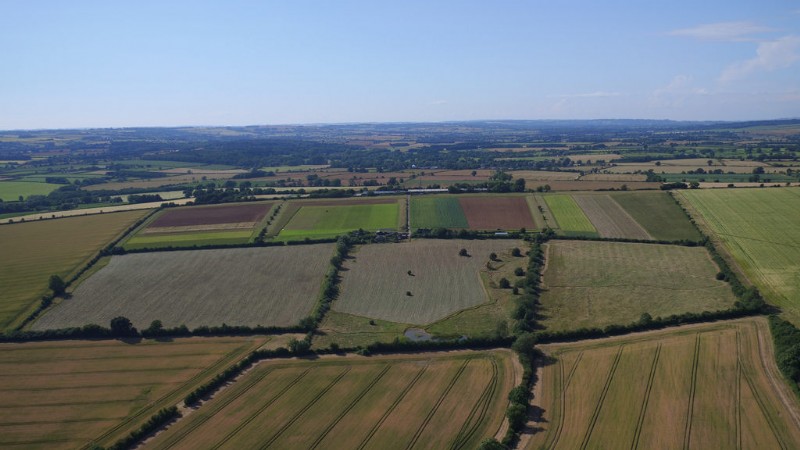
Prime Minister and local MP, David Cameron visited Honeydale Farm to see the simple and newly created natural flood management works there, and learn how such schemes on farms can help prevent flood events downstream.
Addressing the controversial issue of paying farmers to flood land, the approach demonstrated at Honeydale, an experimental farm owned by Cotswold Seeds located near Shipton-under-Wychwood, uses less land and has a lower financial cost than other methods.
Experts were on hand to demonstrate how the simple scheme here, if replicated over a large number of farms, would have a significant effect on the fifteen million people further down in the Thames Valley.

Mr Cameron was met by the owners of Honeydale Farm, Ian and Celene Wilkinson, before listening to short talks by Dave Gasca, Hydrologist from the Evenlode Catchment Partnership, Hilary Phillips of Wild Oxfordshire and Sharon Williams of the Wychwood Project, which helped plant the trees surrounding the newly formed water catchment pond.

Mr Cameron was then taken on a short walk from the spring head down past the ponds and dams to the scrape, which gave Ian Wilkinson the opportunity to explain how, as a landowner, it is extremely beneficial to have the ‘natural capital’ of water on the farm. However in order to have it, technical advice was required (from Vaughan Lewis of aquatic resource consultancy Windrush AEC Ltd) together with capital funding from the National Lottery via the Cotswold Rivers Trust which helped pay for the work. Without these, it wouldn’t have happened. Sharon Williams also made a plea for government to make the RPA Basic Payment Scheme work better for the environment and Countryside Stewardship schemes less complicated, less competitive and easier for all farmers to access.
Vaughan Lewis was not able to be present today but was keen for Ian Wilkinson to stress that techniques are available to make a real difference to reduce flooding and these also have multiple benefits in terms of reduction of nutrient and sediment runoff to rivers and increased carbon capture.

‘Their usage could have real financial benefits to our collective economy,’ aquatic consultant Vaughan Lewis has said. ‘Despite this, we currently have no mechanism for delivery at a strategic level, so what is needed is a well thought out and funded mechanism to allow implementation of natural flood management measures at optimum locations to maximise benefits. This could be via a modified agri-environmental system or perhaps a simplified version of Dieter Helm’s Catchment model.’
Mr Cameron, MP for Witney, said: “Flooding has such devastating effects and has been a big challenge in West Oxfordshire. I was pleased to accept the invitation from my constituents to see the natural flood management works undertaken at Honeydale Farm and how they are working.”
Further information:
Fiona Mountain, Cotswold Seeds, 01608 652552 fionam@cotswoldseeds.com
Sharon Williams, Wychwood Project, 01865 815420







